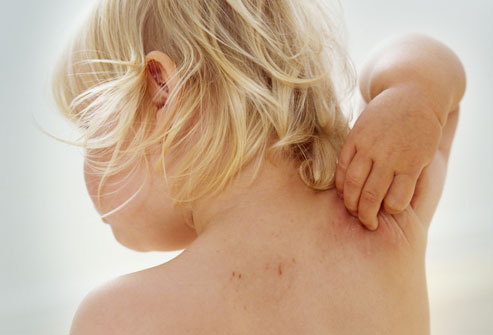Eczema is a fairly common condition. Because there are many types and symptoms of this chronic and uncomfortable skin condition, sufferers aren’t always initially aware that they have it. Fortunately, there are a number of treatments available to curtail the symptoms.
What Exactly is Eczema?
The most common form of this condition is atopic dermatitis. It commonly occurs in children, but can appear in any age group and causes skin to become red and itchy. Patients often develop patches that vary from red to brownish-gray. Small bumps that seep fluid and develop crusts when scratched are typical. Skin can become scaly, cracked, thick, swollen and sensitive.
No one knows the exactly what causes eczema. According to the Mayo Clinic, it probably develops because of a combination of factors like dry and irritable skin, a genetic variation, a problem with the immune system, certain bacteria and environmental conditions. Having a family member with eczema increases the risk for developing it. In addition, so does a family or individual history of hay fever, asthma or allergies. Contact with certain irritants like wool, experiencing stress and living in a cold and dry climate can also trigger the condition.
To diagnose eczema, doctors rely on taking a thorough medical history and examining your skin. Eczema treatment consists of both lifestyle changes and medications and other steps prescribed by your doctor, as stated by WebMD.

Lifestyle Changes
Practicing good home skin care is extremely important to control symptoms. With mild cases, making just a few lifestyle and skin care regimen changes might be sufficient treatment. Options include:
1. Using a mild soap and moisturizing product. Choose a soap or soap substitute that doesn’t dry the skin. Your doctor or pharmacist can recommend specific brands. Apply a moisturizer right after a bath or shower. Some patients with severe cases add a little bleach to bath water to kill skin bacteria.
2. Taking short, warm showers. Extremely hot or long baths or showers dry out your skin.
3. Reducing stress. Earmark time to relax and to exercise regularly.
Medical and Other Treatments
They include:
1. Creams for inflammation and itching. The goal of eczema face treatment is to keep the skin moist. Doctors often prescribe a cream or an ointment with a corticosteroid.
2. Creams to repair skin. They are known as calcineurin inhibitors, and are available only by prescription and can affect the immune system. These drugs are only appropriate for youngsters who are least 2 years old and for adults.
3. Medications for infections. Your doctor might prescribe an antibiotic if you have a skin infection caused by bacteria.
4. Antihistamines. Taken orally for severe itching, they’re helpful at bedtime because of their tendency to cause drowsiness.
5. Oral or injected corticosteroids. Their use is limited to the short term because of possible side effects. These drugs are used for severe cases to control inflammation.
6. Dressings. Wrapping an eczema site with wet bandages and topical steroids is an intensive treatment for severe cases and typically requires skilled nursing care.
7. Immunosuppressants. These powerful drugs suppress your immune system.
Phototherapy. A natural way to use light therapy is exposure to controlled amounts of sunlight. Some patients profit by exposure to artificial ultraviolet A and narrow band ultraviolet B.
+Dr.Cheryl Lee has developed a sensitive skin care product line which she blogs about regularly at cherlyleemd.com



